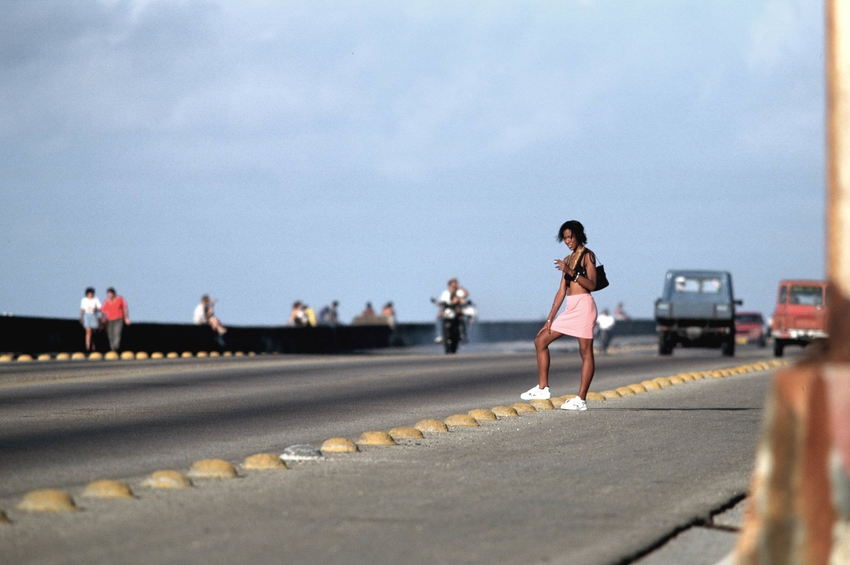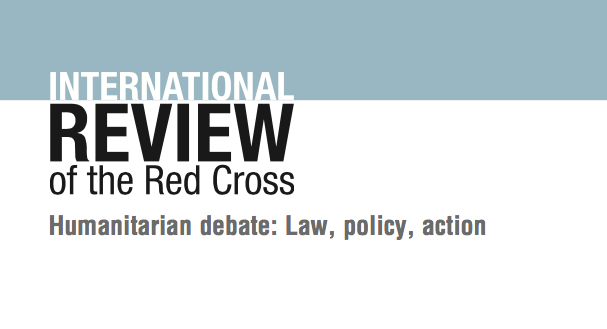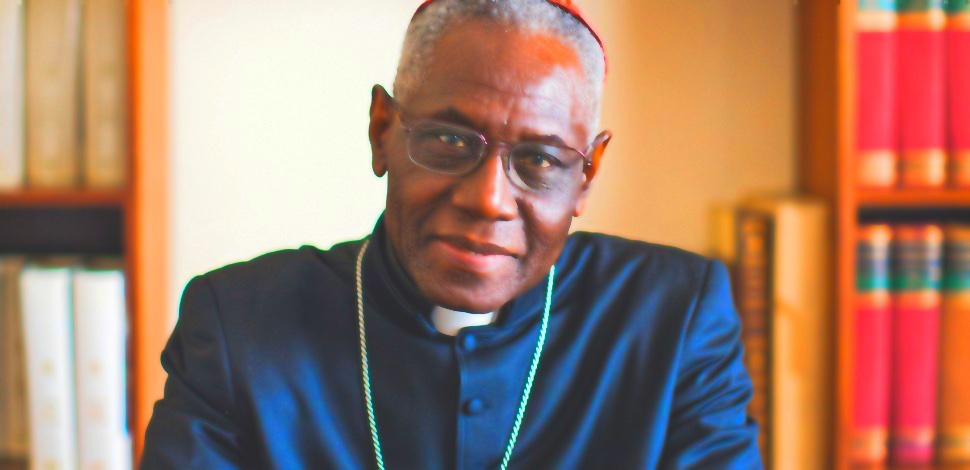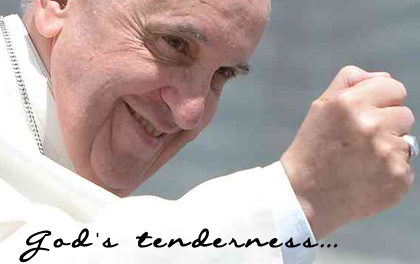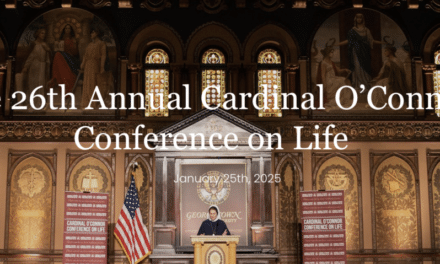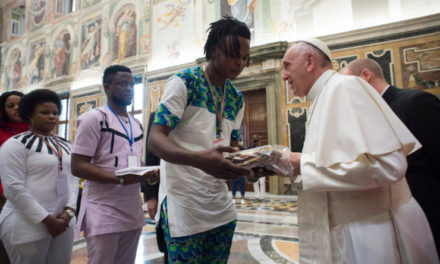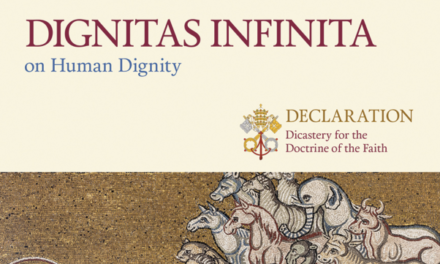Human trafficking and the logic of profit
Cardinal Michael Czerny
Note: you can find tis article in French below.
Human trafficking is, after arms trafficking, one of the most profitable markets at the international level. The development of Internet technologies has contributed to the growth of its recruitment and exploitation territories. Every country has become a place of origin, transit and destination for this traffic. A commodification of people that originates in our “waste culture” and our economic system.
Cardinal Michael Czerny SJ, undersecretary of the Migrants and Refugees Section,[1] became in January 2022 prefect ad interim of the Dicastery for the Service of Integral Human Development. He was advisor to the President of the Pontifical Council for Justice and Peace from 2010 to 2016. He also directed the Secretariat for Social Justice of the Jesuit General Curia in Rome and was the founding director of the African Jesuit AIDS Network (AJAN).
The impunity rate for crimes related to human trafficking is very high. It is estimated that for every two thousand known victims, only one prosecution is initiated. In addition, the number of convictions for trafficking in human beings is much lower than the number of sentences for other crimes.[2]
The purpose of human trafficking is to enslave the bodies and lives of those caught in its net, for sexual and labor exploitation, organ harvesting, surrogate motherhood and illegal adoption, begging, forced marriages and the recruitment of child soldiers. According to the United Nations Office on Drugs and Crime,[3] the majority of victims of human trafficking are women and girls, exploited primarily for sexual purposes. They are particularly from Southeast and South Asia, although the African continent has the highest rate of trafficking victims per capita, followed by Eastern Europe.
Leftovers” requested…
Trafficking in human beings reduces its victims to the status of commodities that can be bought and sold on a market, and that are exploited as labor or even as “raw material” in multiple and unimaginable ways. This commodification and exploitation of people on a global scale has its source in the “culture of waste”[4] repeatedly condemned by Pope Francis, which makes money a god. Thus the accumulation of capital gradually transforms work into a “means” and money into an “end.”[5] Enormous masses of people find themselves marginalized, because deprived of decent work, becoming “waste, leftovers.”[6]
In addition to unemployment and the lack of healthy, safe, dignified, and reasonably paid jobs, there are other root causes that contribute to the spread of the scourge of human trafficking. These are poverty, gender inequality, lack of social protection (medical care, education, decent living conditions), forced displacement, isolation of rural areas, corruption, racism and discrimination, family disruption, communal violence and sexual violence against women…
This commodification and exploitation of human beings also responds to a “demand” within our societies (Pastoral Orientations, 20). Pope Francis is explicit about this: “If there are so many… victims of trafficking… it is because many,… here, ask for these services.”[7] Yet, apparently, most consumers are little aware of this trafficking and the exploitation that is linked to it.
A Kafkaesque spiral
HUMAN TRAFFICKING is also unfolding in connection with the technological advances of the Internet. The web has provided traffickers with new forms of recruitment and virtual exploitation, and the pandemic has increased their use. Social media attracts victims and makes it difficult to detect and prosecute these crimes: “Victims of human trafficking are often manipulated and trapped in psychological patterns that do not allow them to escape, seek help, or even understand that they have been-or worse, are still-victims of criminal activity” (Pastoral Guidance, 23). In 2021, the Internet has become the primary tool of criminal groups. Unfortunately, law enforcement authorities are often not adequately equipped to respond to the challenge of online trafficking.
“Victims of human trafficking usually remain invisible… Many people are inclined to denounce the HUMAN TRAFFICKING that occurs elsewhere, without realizing that it also unfolds in their neighborhood” (Pastoral Guidelines, 23). The perpetrators of human trafficking are protected by a vast conspiracy of silence, even where working conditions are better. Corruption is rampant, not only in companies of all sizes, but also in families that recruit, send or sell young and vulnerable people, who thus become objects of trafficking.
It is also very difficult to be recognized as a victim because of bureaucratic legal procedures. The main obstacle, a formidable paradox, is to prove that as a victim of trafficking, one is not guilty of offenses under immigration, labor or family laws or any other provision of the criminal code. These victims must therefore fight to prove that they did not give their consent to their own entrapment and exploitation.
However, even when victims are recognized as such, their situation may remain difficult. Most of them need long-term assistance due to the consequences of trauma on their mental health or because of their status as foreigners. In this case, the recognition of their right to stay in the host country is linked to the legal recognition of their status as victims. However, the two procedures often do not take place in a coordinated manner, which can increase the victimization of the person. As a result, victims of trafficking fall through the cracks of the criminal justice systems and do not benefit from the assistance offered by governments and civil society organizations.
A commercial dynamic
Little is known about the commercial dynamics of this traffic. The Pastoral Guidelines defined by the Migrants and Refugees Section of the Dicastery for the Service of Integral Human Development help to shed light on the subject. “The modern world of finance, commerce, transportation and communications offers unscrupulous people the opportunity to enter the system of entrapment and exploitation of human beings. [This is the case] in industries such as agriculture, fisheries, construction, and mining… When well-intentioned efforts are made to counter human trafficking, unscrupulous entrepreneurs simply change their tactics to avoid countermeasures” (Pastoral Orientations, 29).
Thus “the trafficking of human beings is often hidden in the labyrinth of supply chains. Increasingly competitive markets force companies to reduce labor costs and procure raw materials at the lowest possible prices” (Pastoral Orientations, 32). People should be able to rely on goods supplied in accordance with public procurement procedures and whose supply chains are free of labor exploitation. “The demand for cheap goods, provided through low-cost labor, should [therefore] be promptly and adequately addressed through both public awareness and ‑legislation… [and] require all companies, especially those operating transnationally and sourcing from developing countries, to invest in transparency and accountability [of] their supply chains” (Pastoral Orientations, 33).
An economy that kills
In a deregulated market where only the calculation of profits and losses counts, people are just numbers to be exploited. 8 “Such an economy kills,”[9] Pope Francis has stated bluntly and provocatively. And we must transform it.
The goal is to build a society that puts the human person at the center. 10] The Holy Father has outlined a path to promote justice and a new economy of care. An economy that cares for people and nature, that provides products and services for the common good, and that enables all people, men, women and children, to live in security and in healthy communities. An economy in which we are all “brothers” — fratelli tutti.
To eradicate the scourge of human trafficking, we must end gender discrimination and promote integral human development and care for nature as paradigms for a new economy. 12] This means investing in people rather than in monetary profits, and limiting the concentration of power and wealth in the hands of a few. 13]
Developing collaboration
International cooperation at all levels is also essential to dismantle structures of oppression and exploitation, to respond adequately and inclusively to trafficking in persons and the demand that fosters it, and to foster sustainable development. Just as international crime can only be combated through a shared commitment, so too must we work more closely with a range of organizations from the private sector, governments and academic institutions, civil society, and religions.
Transformation at a deeper level is also needed to eliminate the demand for trafficked “bodies.” Pope Francis invites us to pray that “God will free all those who have been threatened, injured or abused by human trafficking and console those who have survived such inhumane treatment.” He calls on each of us to “open our eyes, to see the misery of those who have been stripped of their dignity and freedom and to hear their cry for help.”[14]
[1] The Migrants and Refugees Section is part of the Dicastery for the Service of Integral Human Development.
[2] OSCE, 20th Conference of the Alliance against Trafficking in Persons. “Putting an end to impunity. Bringing justice by prosecuting human traffickers,” Vienna, July 20–22, 2020.
[3] United Nations, Office on Drugs and Crime and the 2020 Global Report on Trafficking in Persons.
[4] Pope Francis, Evangelii Gaudium, November 24, 2013, § 53, pp. 46–47.
[5] Migrants and Refugees Section, Integral Human Development Service, Pastoral Guidelines on Trafficking in Persons, Vatican City 2019, § 19, p. 11. Subsequent references to this work in my text indicate the paragraph numbers cited. To be read in full at migrants-refugees.va
[6] Congregation for the Doctrine of the Faith and Dicastery for the Service of Integral Human Development, Œconomicae et pecuniariae quaestiones. Considerations for an Ethical Discernment on Some Aspects of the Current Economic and Financial System, Vatican City, 6 January 2018, §15.
[7] Pope Francis, Address to the Participants in IVe World Day of Prayer and Reflection against Trafficking in Human Beings, Vatican City, 12 February 2018.
[8] Pope Francis, Video Message on the Occasion of 7e World Day of Prayer and Reflection against Trafficking in Human Beings, Vatican City, 8 February 2021.
[9] Pope Francis, Evangelii gaudium, op. cit. [
10] Pope Francis, video message on the occasion of the 7e World Day of Prayer and Reflection against Trafficking in Human Beings, op. cit. [
11] Named after Pope Francis
’ encyclical letter, Fratelli tutti. On Fraternity and Social Friendship, of October 3, 2020. (n.d.l.r. )
[12] Pope Francis, video message on the occasion of the international online event The Economy of Francisco. Young People, a Pact, the Future, Vatican City, November 21, 2020.
[13] Idem.
[14] Pope Francis, message to the Catholic Bishops’ Conference of England and Wales for the Day for Life, June 17, 2018 (unofficial translation by the author).
Pastoral Orientations
The Vatican’s Migrants and Refugees Section has issued Pastoral Guidance on Trafficking in Persons (2019) with guidance on how to combat human trafficking and assist its victims.
Developing partnership
“The implementation of the Palermo Protocol has been broadly presented in terms of three nouns beginning with a P: prevention, protection and prosecution… There is also another P: partnership, which is no less important… The lack of collaboration-or even competition-between various governmental actors often renders well-intentioned policies and programs ineffective” (Pastoral Orientations, 38). “Greater cooperation is needed” through the sharing among States of “relevant information on HUMAN TRAFFICKING…and developing joint prevention, protection and prosecution interventions” (Pastoral Orientations, 39). “To be effective, cooperation and coordination must also involve civil society, faith-based organizations and religious leaders as well as the business community and the media” (Pastoral Orientations, 39).
Technology offers opportunities to combat trafficking in persons, including streamlining bureaucratic procedures, establishing direct contact with NGOs and law enforcement authorities, and launching awareness and education campaigns. Likewise, international cooperation has become easier: the coordination and implementation of joint operations in real time and to the end is one of the great successes achieved through technology. This has made it possible to dismantle major criminal networks.
Putting victims back at the center
“Reintegrating survivors of human trafficking into society is not a simple issue, given the trauma they have experienced. Their many needs are first physical, then psychological and spiritual; they need to heal from the trauma, stigma and social isolation they have experienced” (Pastoral Orientations, 41). Victims become empowered when they achieve autonomy, personal growth and acceptance by society. For this to happen, public policies at all levels must take into account the gender differences[1] that exist in the main contexts of daily life (family, community, education, work). In India, for example, male ownership of land is the source of a series of economic, social, cultural and legal obstacles to women’s empowerment.
A network of care
A good example of a response to HUMAN TRAFFICKING is Talitha Kum, an international network set up by the International Union of Superiors (UISG) on five continents. These sisters take care, first of all, of the victims, their families and the people in danger. They help them to heal their physical and psychological wounds. They also empower victims, survivors and people at risk to make their voices heard. Finally, they contribute to restoring the human dignity of victims by promoting their access to justice from a victim-centered perspective.
[1] UN Women, Turning promises into action: gender equality in the 2030 Agenda for Sustainable Development, 2018.
 Loading…
Loading…

